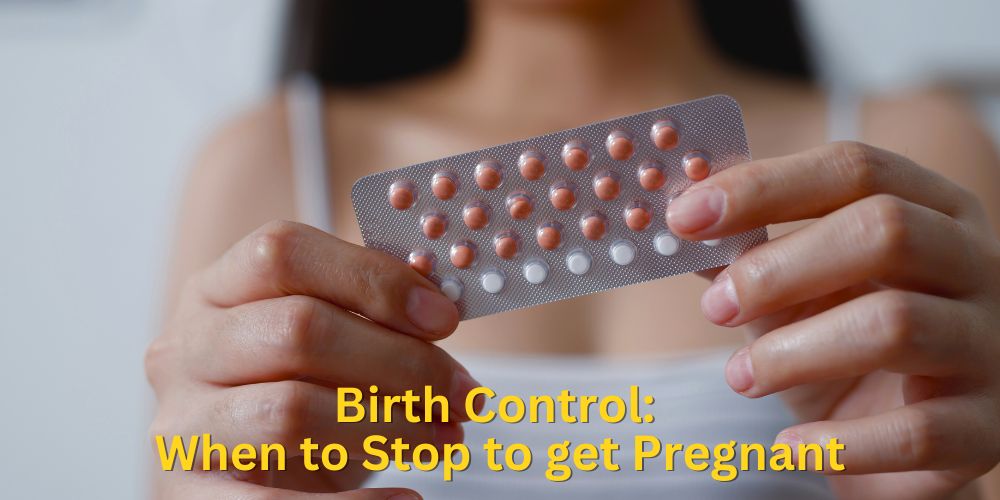As a fertility expert, one of the most common questions I receive is about the timing of stopping birth control before trying to conceive. The journey to parenthood is filled with many questions, and understanding how birth control impacts fertility is crucial. Let’s dive into this topic and debunk some myths along the way.
When is the Right Time to Stop Birth Control Before Pregnancy?
Well, I have to be honest—trying to get pregnant while on birth control doesn’t work nearly as well. (A little humor never hurts!) But seriously, the transition from using birth control to trying to conceive is often smoother than many people expect.
First, let’s talk about birth control pills. Many worry that coming off the pill will delay their fertility, but the reality is quite different. You can stop taking birth control pills, and the very month you come off, your fertility can rebound quickly. The hormones in birth control pills are eliminated from your system relatively quickly, allowing ovulation to resume promptly.
How long to go off birth control before getting pregnant?
For most methods, you don’t need to wait long at all. Birth control pills, the patch, NuvaRing, and progesterone-only pills typically allow for a rapid return to fertility, often within the first menstrual cycle after stopping. However, if you’re using Depo-Provera, you might need to be more patient. It can take up to a year for fertility to return to normal after the last injection due to the high dose of progestin.
How soon after stopping birth control do you ovulate?
Most women will ovulate within a few weeks after stopping birth control pills, the patch, or NuvaRing. These methods contain hormones that are quickly cleared from the body, allowing ovulation to resume. For IUD users, ovulation may return in the first cycle after removal, but it can take a bit longer for hormonal IUDs compared to non-hormonal ones. With Depo-Provera, ovulation may be delayed for several months to a year.
When should I take birth control pills to prevent pregnancy?
To prevent pregnancy, you should take birth control pills as prescribed by your doctor, typically starting on the first day of your menstrual cycle or the first Sunday after your period begins. It’s important to take the pill at the same time every day for maximum effectiveness. Missing doses or taking the pill inconsistently can reduce its effectiveness and increase the risk of pregnancy.
How long do you have to be off birth control to test fertility?
If you’re planning to test your fertility, it’s generally a good idea to be off birth control for at least one to two menstrual cycles. This allows your natural hormone levels to stabilize and provides a clearer picture of your reproductive health. For those using Depo-Provera, it might be necessary to wait longer, as it can take up to a year for fertility to return to normal.
Final Thoughts: Stopping Birth Control Before Trying to Conceive
In summary, if you’re planning to start a family and are currently using birth control pills, the patch, the NuvaRing, or progesterone-only pills, you can expect your fertility to bounce back quickly—usually within the month you stop. For those using longer-lasting methods like Depo-Provera, a bit more patience might be required as your body readjusts.
Remember, every individual’s body is different. While these general guidelines can provide a good starting point, it’s always best to have a conversation with your doctor to discuss your specific situation and any other factors that might affect your fertility.
Understanding the effects of birth control on fertility can ease some of the anxieties associated with family planning. With accurate information and proper medical advice, you can make informed decisions that best suit your reproductive goals and overall health.
So, if you’re ready to embark on the exciting path to pregnancy, rest assured that stopping birth control doesn’t have to be a daunting step. With the right information and support, you’ll be well on your way to welcoming a new addition to your family.
Next Steps You Can Take
At Positive Steps Fertility, my goal is to give women clear, evidence-based answers so they can make informed decisions. If you’re worried about your fertility, call us today, and we’ll help you understand the complete picture of your fertility and your options for the future.
Do you still have questions?
- Learn more about When to Seek Fertility Advice
- Watch my YouTube Video on When to Seek Fertility Advice
- Sign up for our 20-minute fertility diagnostic test, the Parryscope Test, invented by Dr. Parry.
If you’re ready for answers now, schedule a consultation with our team. Don’t suffer in silence. Find answers. Find peace. Reach out today




